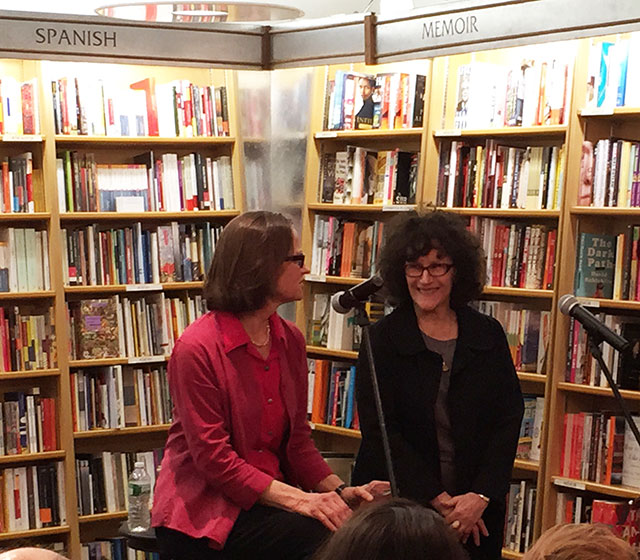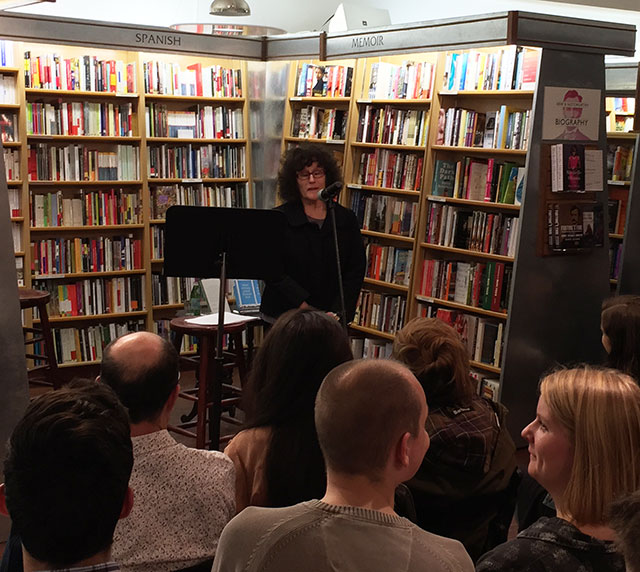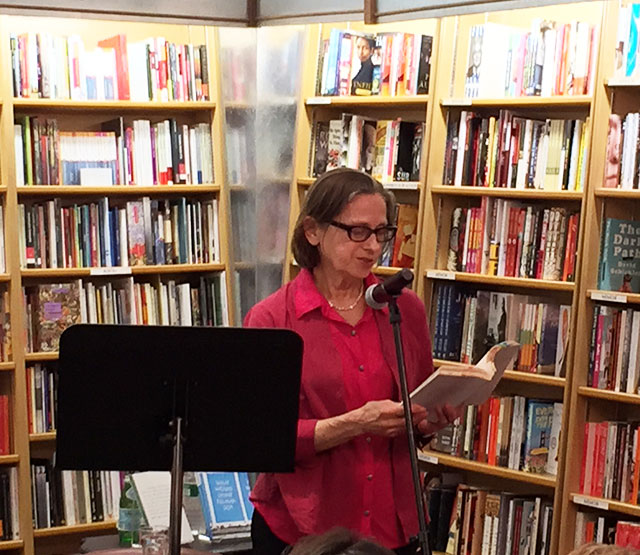
An overflowing crowded showed up at McNally Jackson Books to listen to the two authors read and discuss their work. Davis read new stories and selections from the collection Can’t and Won’t, now in paperback. Tillman, who’s latest book is the collection of essays, What Would Lynne Tillman Do?, read selected short stories, including one written for Gigantic Magazine.
Gigantic Magazine solicited Tillman for a science fiction short story. “I was immediately confronted with the problem of language. If I was writing something in the future, the language would be different,” she says.
And a new language she did create. Tillman employed the slang words already used in contemporary communications like “totes,” to mean totally or completely. Others were truncated versions of words, and some words were simply used in unexpected ways. To hear the story read aloud tickled the brain.

“I had fun that, but I could never do it again,” she says. Asked if she wrote the story and translated it into her future language, or whether she wrote it in the native future-speak, she said: “Maybe I always feel like I’m translating.”
She didn’t create a dictionary or use a reference document to write the language. She said that once she got into the rhythm and mindset of the language, it was easy to stay with it.
Tillman was taken with the idea of Robo-sapiens—robots that are nearly human. She says that I raises the question of defining what is and is not human.
Of course, she adds, she doesn’t know if the language she created really is how people will speak. She can only invent something based on what she knows now, and says that in creating it, she was thinking about historical shifts.

Davis read a story that she had written six different ways. None of the ways really felt finished though. “I was actually just trying to find the best way to write those,” she says. She included all of the iterations in the collection. Davis also read unpublished stories that she describes as the product of a long winter in the snow.
Davis produces a lot of stories. They don’t always share a relationship with each other. In her latest collection, when she looked at the body of work as a whole, she felt they were very disparate types of stories. “I felt really at a loss as how to organize it,” she says. Finally, she realized she had five stories that were like letters of complaint. From there she organized the stories thematically distributing them across each of the five letters.
She actually has sent complaint letters. For example, with “Letter to a Frozen Peas Manufacturer,” she explains that she first dumbed it down a little bit before sending it. The company responded. They sent her a coupon for more products, but didn’t bother addressing her concern.
Translation is an important part of Davis’s writing career as well. When she is translating a work, she looks at the original work as providing a natural structure. She says that translation allows writers to focus on the enjoyable parts—word choice, arrangement, sentence construction.
Davis is a master of observation. It is where her stories come from. “I’m never intending to write a story,” she says, adding “I’m taken by surprise.” It can be a problem for writers. Constantly observing life is tiring. She once had a student who couldn’t stick with writing because the student felt it was too much to constantly be observing.
“I’m taking the whole of the observed thing,” she says. “You can select out the best parts or the parts that don’t add to it.”